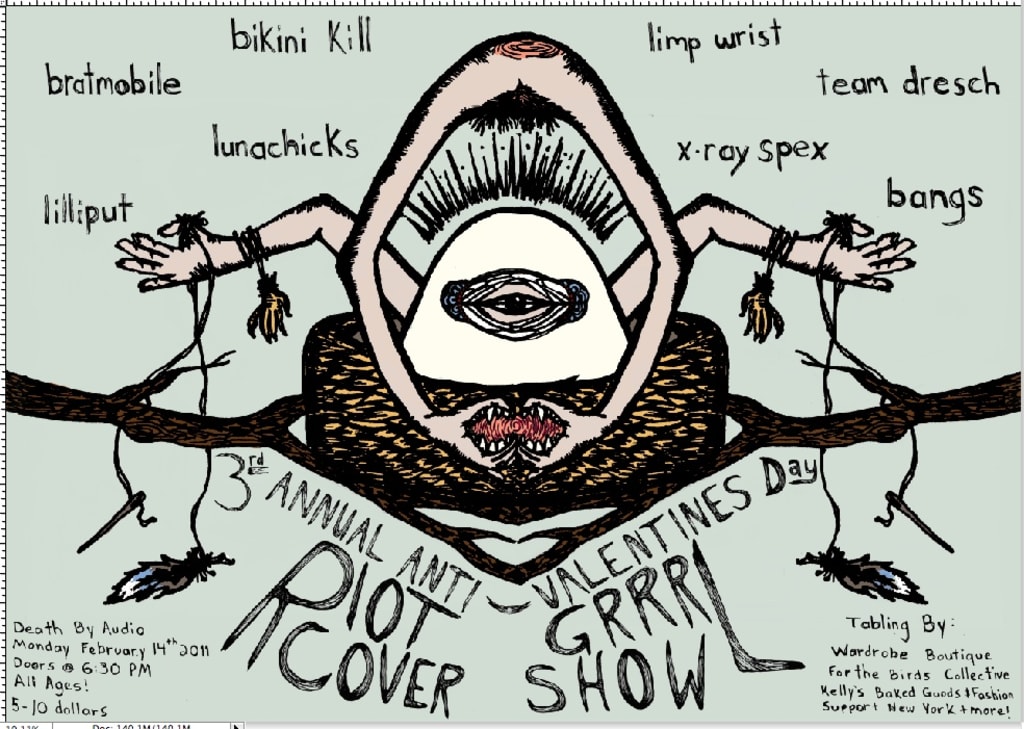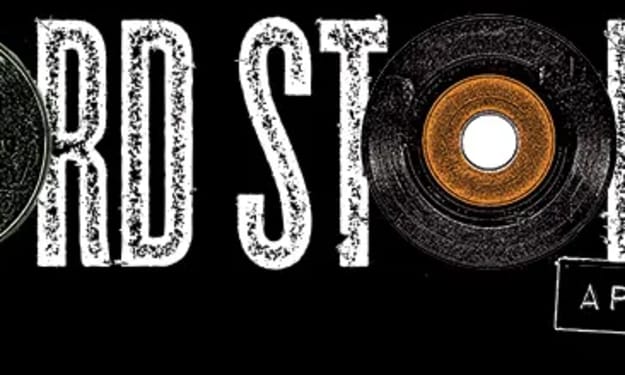Barbara Creed to Bikini Kill: The Poetry of Blood, Sweat, and the Abject in Punk Rock
Monstrous-feminine

Originally posted in School of Doodle.
“All human societies have a conception of the monstrous-feminine, or what it is about woman that is shocking, terrifying, horrific, abject.” — Barbara Creed in The Monstrous Feminine
Women in punk music have told me stories I don’t think I would hear from anyone else. Their lyrics were brutally honest revelations with words that stood out like scenes from a horror film; all blood, guts, cuts, and final girls.
Critical theorist Julia Kristeva describes “abjection” as what does not “respect borders, positions, rules…” and what “disturbs identity, system, order” (P.4). She writes about it in her book Powers of Horror. Theorist Barbara Creed applied it to women in horror film, but I think bits and pieces of this theory apply to women in punk rock.
We do punk better. We do it better because there are so many things society shames us for saying and experiencing, and so by saying it as loud as possible on top of the amplification of a mic, we’re as punk rock as it gets. The lyrics to Bikini Kill’s “Anti-Pleasure Dissertation” are a terrifying breath of fresh air. Did she just say that? Yes, she did. Bands like The Menstruators don’t even hide the fact that they bleed, it’s in their name. There’s something about punk that asks us to let it all out, or, even better, to let it all leak out.
There isn’t much room for women in rock music. There is even less in terms of positive representation for women in rock lyrics. Punk rock has been a space for women to really push boundaries. In her book The First Collection of Criticism by a Living Female Rock Critic, music journalist Jessica Hopper states:
As lame as punk rock can be, as hollow as all our self-serving claims ring — that the culture of punk is truly different somehow than that of median society at its gnarled foundations — still exists the possibilities for connection. There is still the possibility for exposure to radical notions…but much of that hinges on the continual presence of radicalized women…
The rape whistles in Kleenex’s Hitchhike and the lyrics in 7 Year Bitch’s Dead Men Don’t Rape built a mise en scene in my head: this punk wasn’t just about anger, it was also about bodies. It was about monitored bodies, authority over bodies, and entitlement to bodies. To control the uncontrollable blood that comes every month, to hide the fluid left on underwear, to shave body hair that we’re socialized to remove are some of the things too ‘horrifying’ for society. They’re all the things we’re supposed to cast off and act like they never existed in the first place (see razor commercials that have women shaving legs that are already bare).
The chaotic mess of grease and sweat some of these live performances gave reminded you of real bodies. It wasn’t a clean, sparkly pop performance. Punk performances are not what Kristeva would say: “clean and proper.” For her, abjection is the feeling of disgust we get when our bodies leak, bleed, or shed. All the things that we cannot control that threaten our subjectivity and inclusion in society.
Punk rock could be that space that blurs binaries and challenges the restrictions placed on our bodies. We can take our bodies back through descriptive lyrics that would make most people cringe. It must be visceral. We need those lyrics that crush feminine constructs, and it’s not that feminine constructs are all bad, but we need that poetic discourse that shocks us and purposely crosses borders.
About the Creator
Kendra Brea Cooper
Culture, but mostly sound culture.






Comments
There are no comments for this story
Be the first to respond and start the conversation.